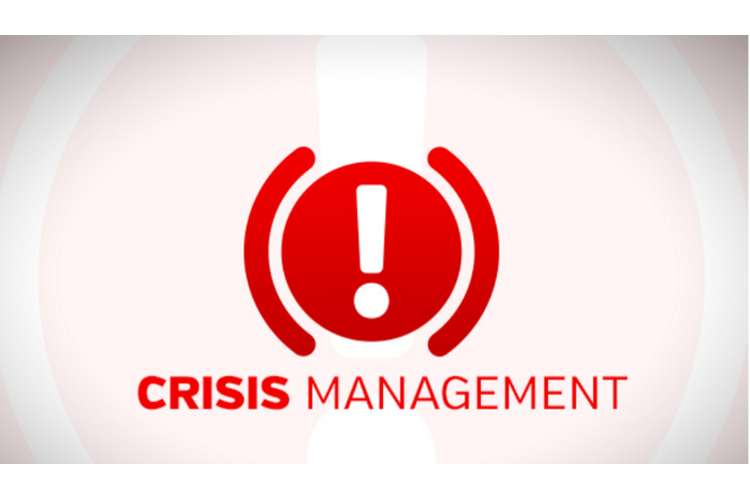
Crisis management prepares the individual to face unexpected development and adverse conditions in the organisation with courage and determination.
Crisis management is the process by which an organisation deals with a disruptive and unexpected event that threatens to harm the organisation or its stake holders. Due to the unpredictability of global events, many modern organisations attempt to identify potential crises before they occur, in order to sketch out plans to deal with them.
When and if a crisis occurs, the organisation must be able to drastically change course in order to survive. Three elements which are most common to a crisis are – a threat to the organisation, the element of surprise and a short decision-making time. Every organisation is vulnerable to crises. Effective crisis management has the potential to greatly reduce the amount of damage that the organisation can undergo owing to the crisis. The following steps can help an organisation limit potential damage in crisis.
STEPS TO CRISIS MANAGEMENT :
- Anticipate – The first thing is to prepare. Be proactive and think about all the potential crises that could occur at your organisation and create a crisis response plan.
- Create a plan and test it – The crisis response plan should be tailored for your organisation in particular, and should include both occupational and communication related components i.e. how to handle it and what to say. In order to ensure, that the messages contained in the crisis response plan are delivered effectively and with credibility, it needs to be tested.
- Identify crisis communication team – A small team of senior executives should be identified to serve as your organisation’s crisis communication team. This team should set the communication process for your business. Communication is of utmost importance when it comes to crisis management. Early hours are critical. Be as open as possible and explain what is being done to fix the situation.
- Take prompt action – Besides looking after the communication part, take prompt action in the operational part also. Identify the problem areas and take as quick action as possible to rectify those.
- Post crisis analysis – This is a must-do activity for any crisis communication team. As the crisis comes under control. A company should examine how effective their plan was during the crisis and the impact the incident has had on its employees, brand and reputation.
NEED FOR CRISIS MANAGEMENT :
- Crisis management prepares the individual to face unexpected development and adverse conditions in the organisation with courage and determination.
- Employees can better understand and analyse the causes of crisis and cope with it in the best possible way. Moreover, crisis management helps the employees to adjust well to the sudden changes in the organisation.
- Crisis management helps the managers to devise strategies to come out of uncertain conditions and also decide on the future course of action.
- Crisis management helps the managers to understand and interpret the early signs of crisis. warn the employees against the aftermath and take necessary precautions for the same.
ARTIFICIAL INTELLIGENCE: THE KEY TO THE FUTURE
https://kolahalstudio.com/single-blog.php?blog=Business-to-Business